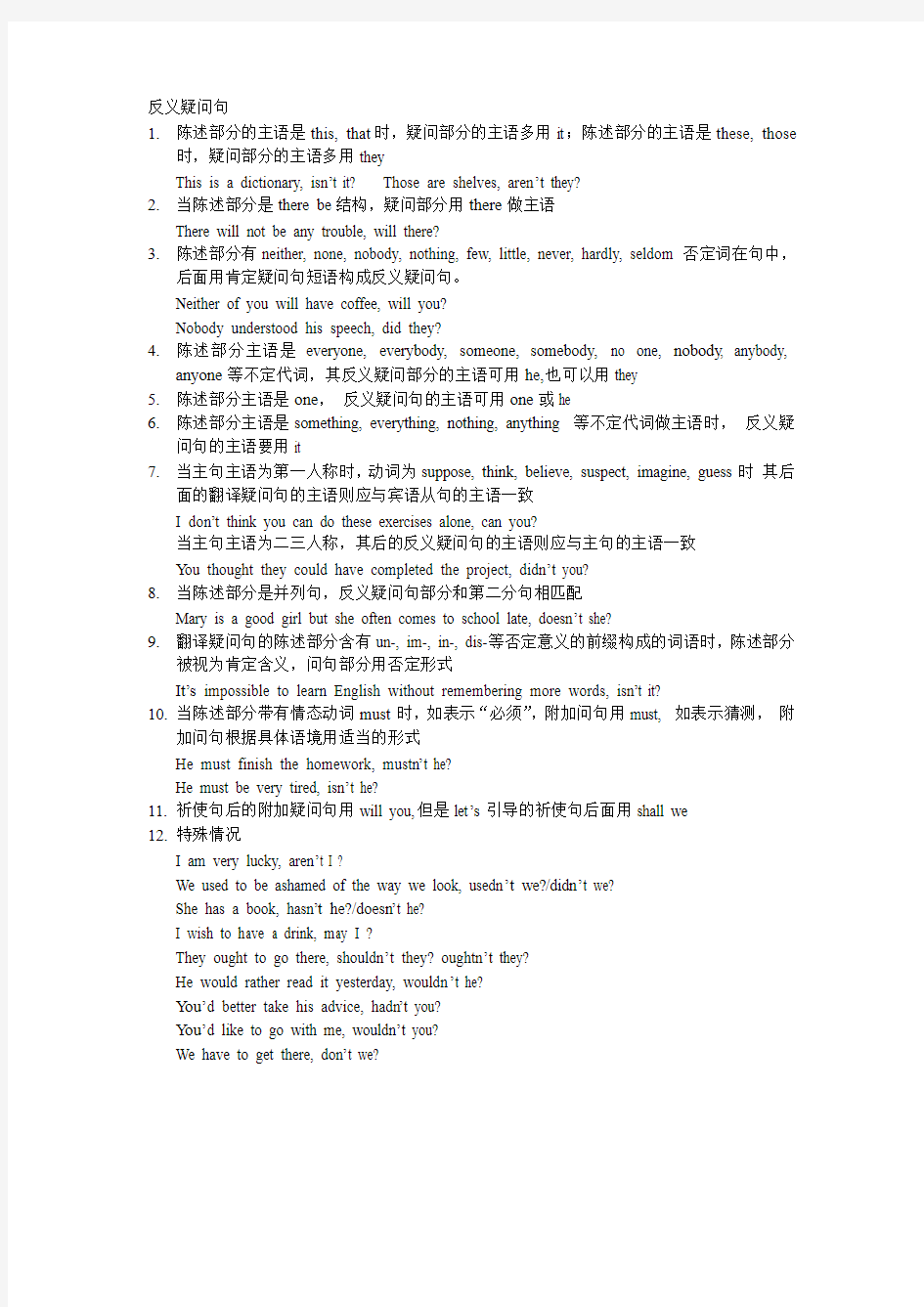
高中英语 语法讲解 反义疑问句
- 格式:doc
- 大小:28.00 KB
- 文档页数:1


反义疑问句
1.陈述部分的主语是this, that时,疑问部分的主语多用it;陈述部分的主语是these, those
时,疑问部分的主语多用they
This is a dictionary, isn’t it? Those are shelves, aren’t they?
2.当陈述部分是there be结构,疑问部分用there做主语
There will not be any trouble, will there?
3.陈述部分有neither, none, nobody, nothing, few, little, never, hardly, seldom否定词在句中,
后面用肯定疑问句短语构成反义疑问句。
Neither of you will have coffee, will you?
Nobody understood his speech, did they?
4.陈述部分主语是everyone, everybody, someone, somebody, no one, nobody, anybody,
anyone等不定代词,其反义疑问部分的主语可用he,也可以用they
5.陈述部分主语是one,反义疑问句的主语可用one或he
6.陈述部分主语是something, everything, nothing, anything 等不定代词做主语时,反义疑
问句的主语要用it
7.当主句主语为第一人称时,动词为suppose, think, believe, suspect, imagine, guess时其后
面的翻译疑问句的主语则应与宾语从句的主语一致
I don’t think you can do these exercises alone, can you?
当主句主语为二三人称,其后的反义疑问句的主语则应与主句的主语一致
Y ou thought they could have completed the project, didn’t you?
8.当陈述部分是并列句,反义疑问句部分和第二分句相匹配
Mary is a good girl but she often comes to school late, doesn’t she?
9.翻译疑问句的陈述部分含有un-, im-, in-, dis-等否定意义的前缀构成的词语时,陈述部分
被视为肯定含义,问句部分用否定形式
It’s impossible to learn English without remembering more words, isn’t it?
10.当陈述部分带有情态动词must时,如表示“必须”,附加问句用must, 如表示猜测,附
加问句根据具体语境用适当的形式
He must finish the homework, mustn’t he?
He must be very tired, isn’t he?
11.祈使句后的附加疑问句用will you,但是let’s引导的祈使句后面用shall we
12.特殊情况
I am very lucky, aren’t I ?
We used to be ashamed of the way we look, usedn’t we?/didn’t we?
She has a book, hasn’t he?/doesn’t he?
I wish to have a drink, may I ?
They ought to go there, shouldn’t they? oughtn’t they?
He would rather read it yesterday, wouldn’t he?
Y ou’d better take his advice, hadn’t you?
Y ou’d like to go with me, wouldn’t you?
We have to get there, don’t we?